‘Seven Samurai’, co-written, edited and directed by the master Japanese filmmaker Akira Kurosawa, is a mammoth cinematic undertaking and success. It has since achieved a legendary status in the world of cinema. It sees Kurosawa collaborating with his regulars Toshiro Mifune and Takashi Shimura. Seven Samurai became what one may call a watershed moment in Japan’s film industry and set a new standard for the industry. Eventually, it would go on to achieve iconic status in world cinema, with it being famously remade as ‘The Magnificent Seven’ in Hollywood by director John Struges. Struges envisioned ‘Seven Samurai’ in the mode of the Western, with the samurais being replaced by gunslingers. Such is the influence of ‘Seven Samurai’, that some critics have even noted similarities in the plot points of the animated Pixar film, ‘A bug’s life’.
Kurosawa initially wanted the film to document a single day in the life of a Samurai, but later, in the course of his research came upon a story of a samurai defending farmers, and he went on to incorporate it as the film’s main premise. This film can be seen as a perfect amalgamation of the commercial and art-house brand of film-making. The fact that ‘Seven Samurai’ went on to become one of the highest grossing films in contemporary Japan, led the foundation of the emergence of a more layered, nuanced take in cinema both by the audiences and the producers. In spite of employing the cliches of commercial, mainstream cinema like heroism, humour and the stereotypical portrayal of the ‘Villain’, Kurosawa never diverts his attention from the philosophical premises of the film. Duty, honour, and integrity forms the moral compass situated right at the heart of this film.
The plot of ‘Seven Samurai’ plays out in 16th century Japan. The profession of the day is farming primarily, and society has almost been divided between the criminals and the farmers. Master-less Samurai roam about the streets, in search of work and shelter. A group of helpless farmers in the course of the film hire seven samurais under the leadership of Kambei Shimada, played by Takashi Shimura, to protect them from the local gang of dacoits. The screenplay is fast paced, emotional, and empathetic towards its characters.
The film, in spite of being over three hours in length, remains action packed and hence even succeeds in holding the attention of the regular film goer. The plot device of hiring the ‘heroes’ to watch over the weak has since become a common trope in films, trickling down to curry-westerns such as the Indian blockbuster ‘Sholay’. Keeping several cinematic aspects in mind, we have managed to compile some of the finest films similar to the Kurosawa classic. So, here’s the list of best movies similar to ‘Seven Samruai’ that are our recommendations. You can watch several of these movies like ‘Seven Samurai’ on Netflix, Hulu or Amazon Prime.
10. Yojimbo (1961)
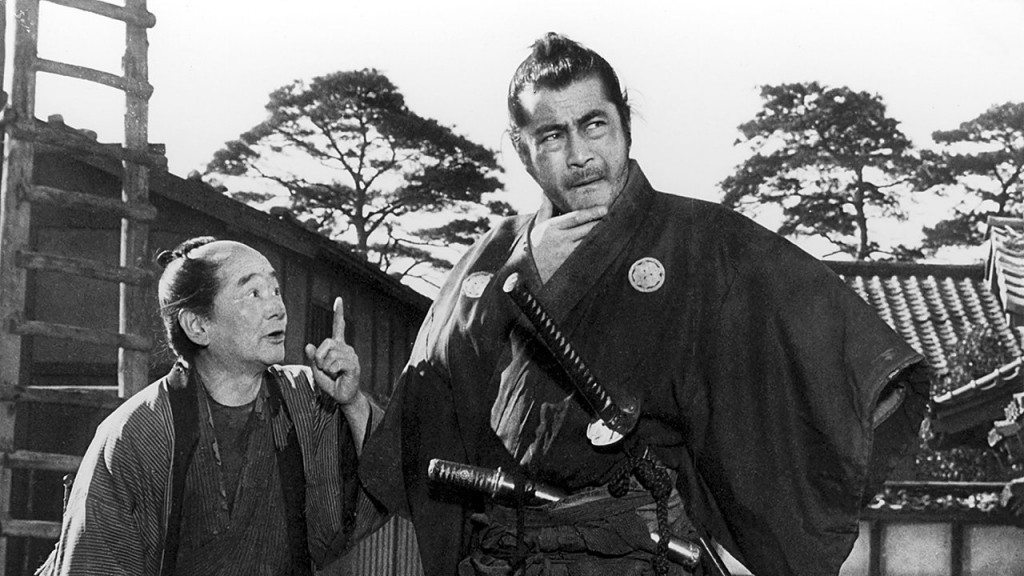
It would be almost criminal to leave out ‘Yojimbo’ while appreciating ‘Seven Samurai’. ‘Yojimbo’ is another example of collaborative artistic brilliance between Akira Kurosawa and Toshiro Mifune. Mifune plays the recurring role of the ‘samurai’, masterless and in search of work. He enters a feudal town and using the competition between two of its business families in their struggle to establish control over the local gambling racket, tries to take over himself. Mifune entertains throughout as the ‘grey’ protagonist. He is seamless in his portrayal of the conniving Samurai. Good over evil becomes a driving premise in ‘Yojimbo’, same as it does in ‘Seven Samurai’.
9. Harakiri (1962)
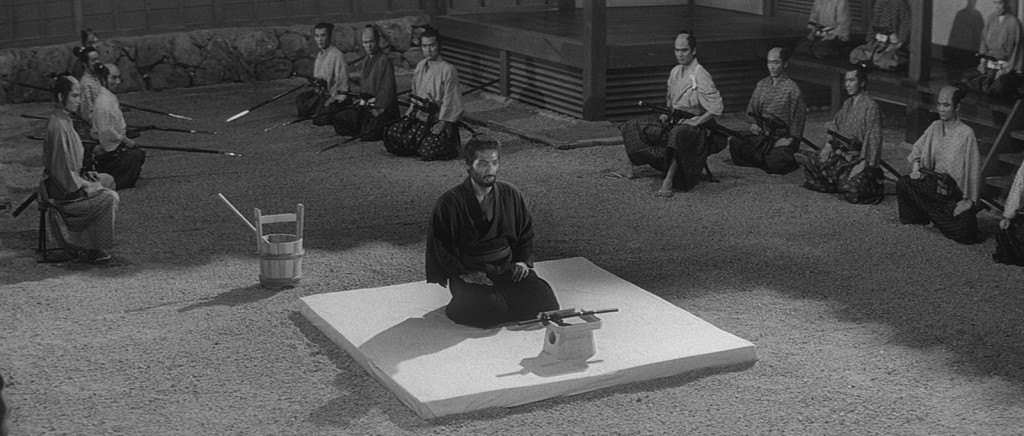
The greatest success of ‘Harakiri’, like ‘Seven Samurai’ comes from proving the point that Samurai films like the Western do not always need to be formulaic in its approach. A Samurai film can be anything it wants to be too; it can deal with human tragedy, love, loss, duty, and moral dilemma. Kobayashi’s slow paced, measured approach while depicting the Edo period, adds to the desolation of the times. The story follows the agonizing life of the master-less Samurai, Hanshiro whose wish is to commit hara-kiri, a form of Japanese ritual suicide disembowelment. The premise is extremely pessimistic and the pathos the film tries to resonate with is that of despair and pity, and yet hopeful.
8. Kill Bill Vol. 1&2 (2003-’04)
Yes! Yes! I know you have seen the film. I’m just adding it to the list for the sheer enjoyment this film brings with itself. Tarantino does in it, what he does best: proving his point while not taking himself seriously. The action sequences are over the top, criticisms of the film being low-art, a pastiche of sorts, can all be justified. However, while doing so, one must not forget that ‘Kill Bill’ doesn’t forget its philosophical premises either. Revenge, honour, love, loss, the weak-strong dichotomy, all find its way in the construction of the ethos of the film. ‘Seven Samurai’, too, is a film, which doesn’t take itself seriously. Mifune’s improvised humour, or the samurai bedding a local before the final showdown, can be seen as examples to prove the same.
7. Rashomon (1950)
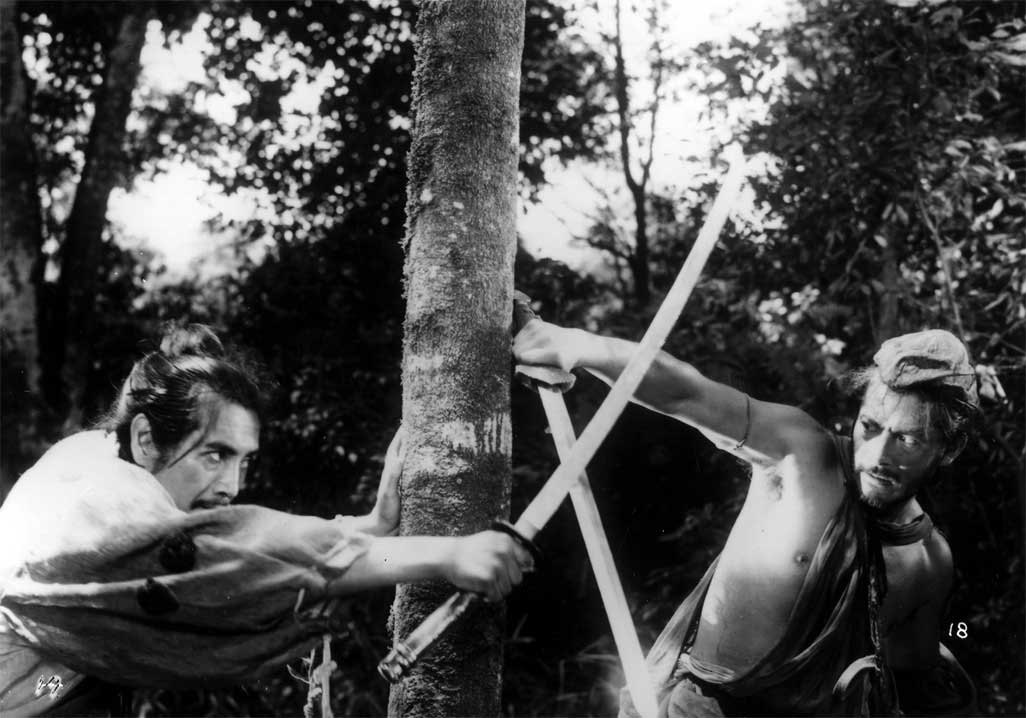
You probably have seen this too, and if not, see it right now. Another milestone moment in the cinematic universe and more so in the Japanese film industry. ‘Rashomon’ serves as one of the first and definitely most famous examples of non-linear storytelling in world cinema. Again a Kurosawa masterpiece, with its favourite Mifune as its hero. Exceptional story telling is employed by Kurosawa. Mifune is brilliant as usual, playing the Samurai accused of rape. Both ‘Rashomon’, and ‘Seven Samurai’, in their essence is a search for truth and justice, and that I believe is their greatest commonality.
6. Sanjuro (1962)
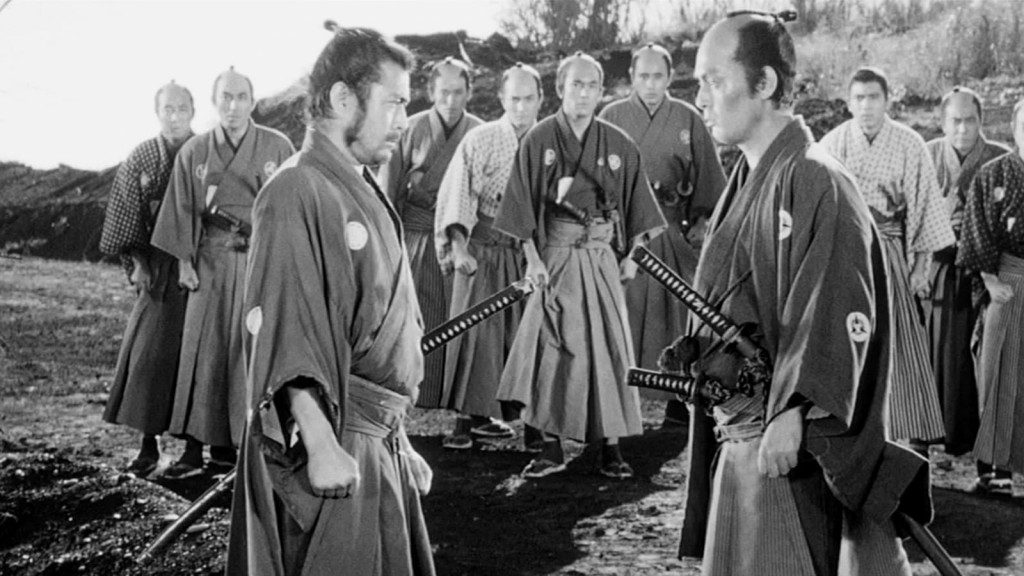
Apologies in advance, for I am indulging myself yet again by adding another Mifune-Kurosawa Samurai film to this list. ‘Sanjuro’ comes as the sequel to ‘Yojimbo’ and tells the story of nine young samurais who believe that their lord chamberlain is corrupt, after he tore up their petition against organized crime. Again a lovely mixture of arthouse and commercial filmmaking, ‘Sanjuro’ establishes itself as a worthy sequel and film for the ages. A horrible remake of the film was made in 2007 by the name of ‘Tsubaki Sanjuro’.
5. Goyokin (1969)
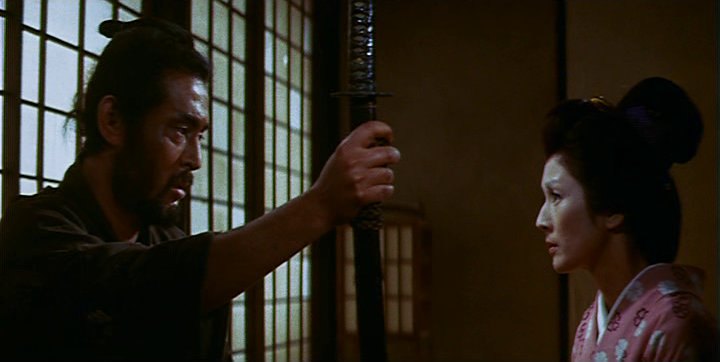
‘Goyokin’ is a 1969 jidaigeki film directed by Hideo Gosha. Jidaegeki is a well known genre of Japanese films. Literally meaning ‘period drams’, they are most often set during the Edo period of Japanese history, ie, from 1603-1868. It follows the story of a reclusive ronin, who is in the spiritual search of atonement for sins he has committed in the past. While admittedly not quite on the same level as some of the other entries on this list, Goyokin works just fine as an enjoyable Samurai film.
4. Samurai Rebellion (1967)
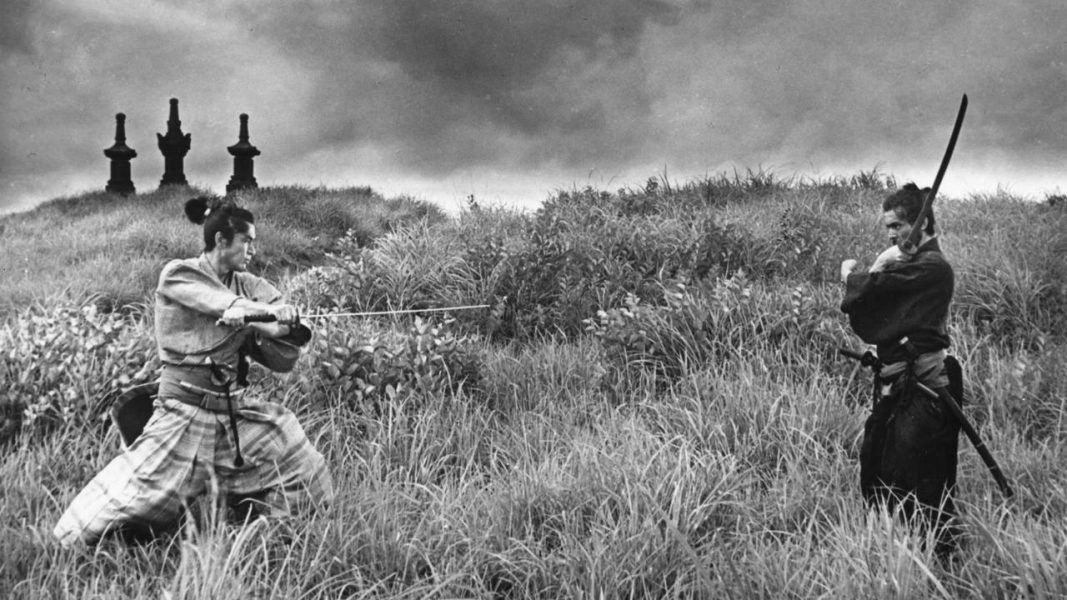
Masaki Kobayashi’s ‘Samurai Rebellion’ is like most samurai films set in the Edo Period in Japan. In the film, the local rulers ask Yogoro, a son of a skilled swordsman to give up his wife. The moral crisis that follows lays down the premise and ultimately ends in a struggle when the refusal to break apart the family results in the rulers ordering the family to take their own lives.
Read More: Movies Like Boyhood
3. Ran (1985)
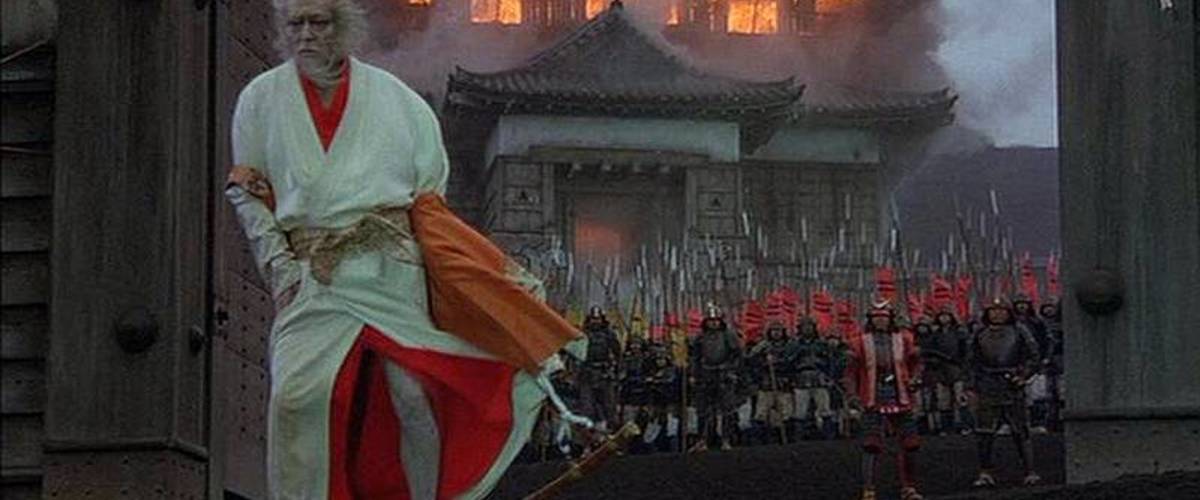
‘Ran’ is master Kurosawa’s epic in colour. It is an adaptation of Shakespeare’s ‘King Lear’, and follows the story of the Great Lord Hidetora. Lord Hidetora after a long and prosperous tenure, decides to divide his land among his three songs. The youngest tries to warn his father of the potential evil that may spring out of his decision, and gets banished for insolence. Family feuds follow and form the premise for the main narrative. Kurosawa makes fantastic use of colour and paints a beautiful film on celluloid.
Read More: Movies Like Saving Private Ryan
2. The Magnificent Seven (1960)
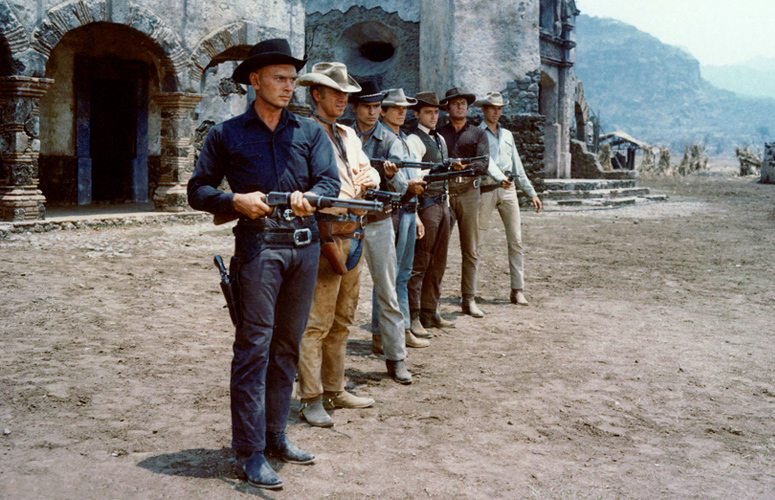
Really not much to write about it. It’s almost an identical remake of ‘Seven Samurai’. It doesn’t have the charm of the original, the same level of mastery in direction or sensitivity in its characters, and yet it manages to entertain the audience in a very Hollywood-esque way. A typical western in many ways which can be watched over dinner and doesn’t require too much of the viewer’s attention. A light, enjoyable, cinematic experience.
1. Crouching Tiger, Hidden Dragon (2000)
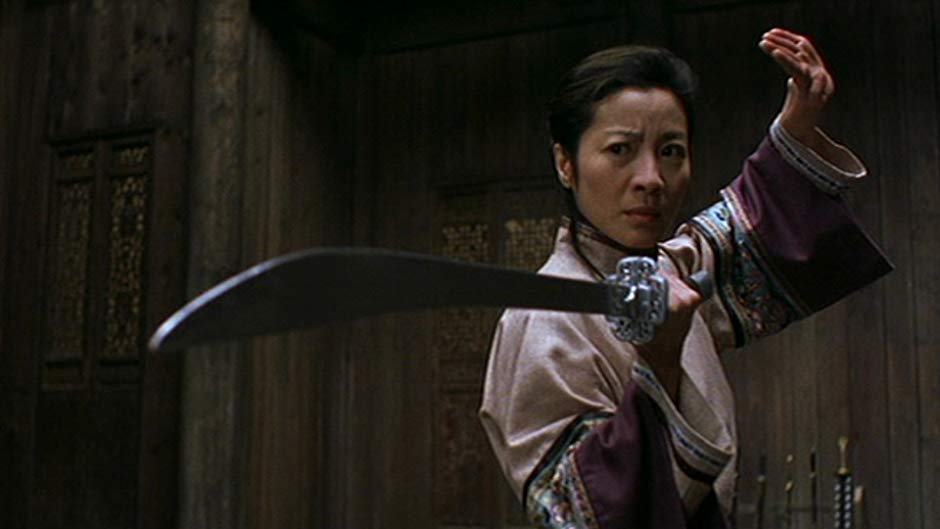
Ang Lee burst into the scene with this film, winning the Academy Award for the foreign language feature. You probably have seen this film as well, but I added it to the list simply because it’s a modern day oriental undertaking which, like Kurosawa, maintains a strong philosophical crux and yet enables entertainment. ‘Crouching Tiger, Hidden Dragon’ is a literal translation of a Chinese idiom which describes a place or situation that is full of unnoticed masters. Gender roles play an important role in the primary narrative of the film; a trait also shared by ‘Seven Samurai’. The teacher-student relation in ‘Crouching Tiger, Hidden Dragon’ can be seen as a sort of parallel to the master-samurai dynamic in ‘Seven Samurai’. The oriental becomes the canvas for both Kurosawa and Ang Lee. Their countries, cultures, sensibilities may differ, but the overbearing presence of the Orient remains undaunted, and forms a kind of arch between these two masterpieces.
Read More: Movies Like Raging Bull

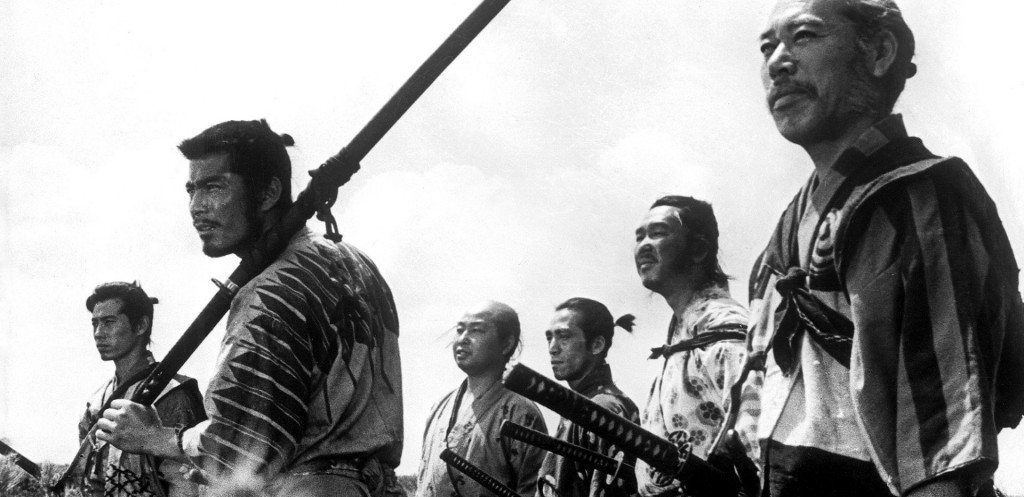
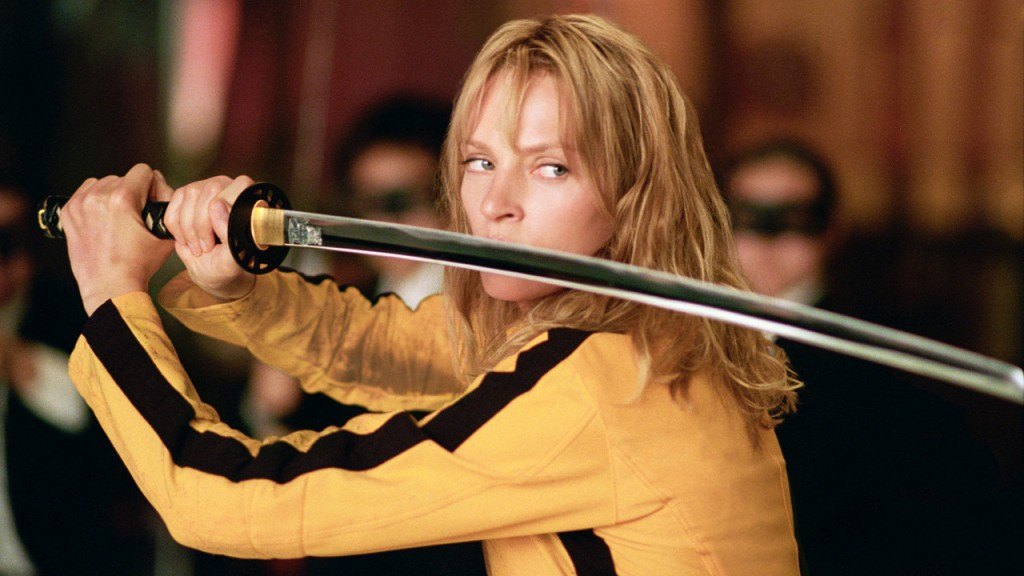
You must be logged in to post a comment.